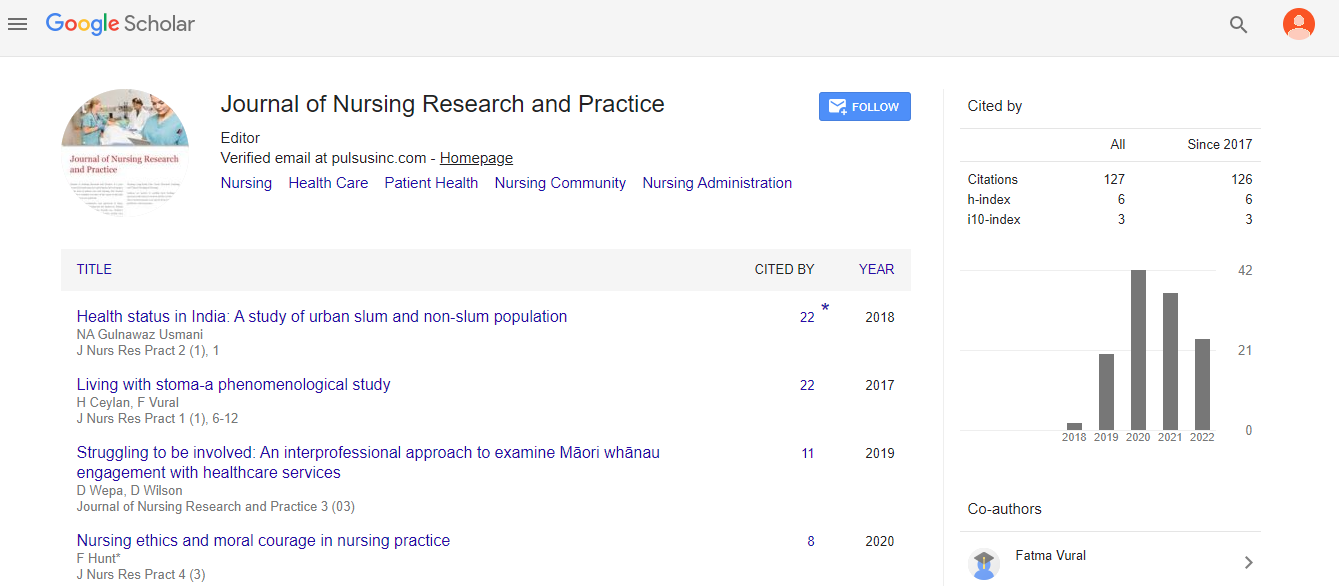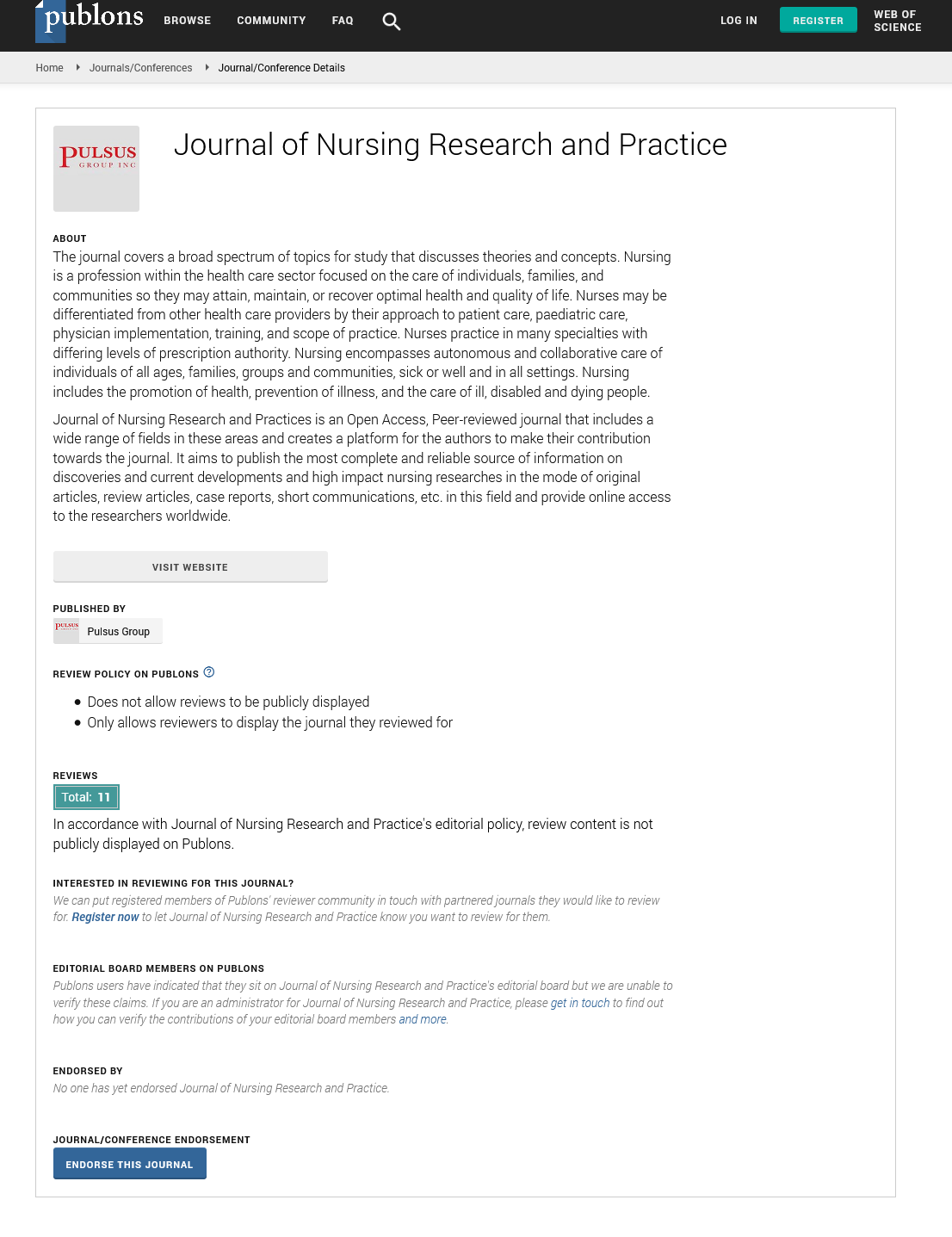
Sign up for email alert when new content gets added: Sign up
Hypertension and diabetes clubs in the government agencies
5th World Nursing and Nursing Care Congress
March 11-12, 2019 Orlando, USA
Nina Allen Galema
Center for Health Development - National Capital Region, Philippines
Posters & Accepted Abstracts: J Nursing Research and Practice
Abstract :
Statement of the Problem: Non-Communicable Diseases (NCDs) continue to be the top leading cause of deaths both in the Philippines and worldwide. People are dying between the ages 30 and 70 years old due to these chronic and irreversible diseases and have caused a global burden.
Methodology: The Center for Health Development – National Capital Region (CHD-NCR) urged the creation of Health Clubs not only in the communities but also in the workplaces in 2017. This is to ensure continuity of care, raise the effectiveness of lifestyle changes and prevent complications focusing on the two most common and easily detectable clinical manifestations of NCDs: hypertension and diabetes. The CHD-NCR reached out to national and regional government agencies to train health staff on the Philippine Package of Essential Non-communicable Diseases Interventions (PhilPEN), adopted from the World Health Organization (WHO). It consists of guidelines for the integrated management of hypertension and diabetes through a total risk approach. The client is assessed and managed using estimates of the client’s risk of a cardiovascular event in the next ten years. Health services available are made available to all government employees 25 years old and above diagnosed with hypertension and diabetes which include the provision of free maintenance medicines such as Amlodipine, Losartan, Metformin and Gliclazide.
Conclusion and Significance: Currently, there are 15 government agencies with organized and functional hypertension and diabetes clubs. As of March 31, 2018, 98,380 were risk assessed using the PhilPEN, 31,553 were diagnosed with hypertension, 7,315 were diagnosed with diabetes, 6,050 were diagnosed with both hypertension and diabetes and 21,734 were found to be at 30% and above risk for cardiovascular accident. There are 12M hypertensive adults in the country and only 8% of them were diagnosed. This is alarming and people need to see that it is time for urgent action to fight against lifestyle-related NCDs.
Biography :
E-mail: nittany927@yahoo.com





